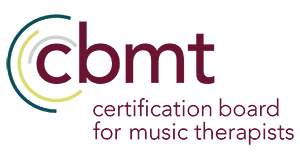With Growth Rates Steady, Music Therapy on Pace to Soon Reach 10,000 Certificants
With steady growth rates over the past 10 years, music therapy is drawing more attention as a very exciting field. As music therapists play an increasingly key role in physical and psychological healing, they are seeing the industry further evolve and expand, resulting in enhanced professional benefits.
These benefits include improved access to educational programs, as well as greater opportunities for the area and delivery of professional practice. The evolution of the field also has led to official recognition by more states, the first step toward inclusion within health and education regulations. This allows for improved employment opportunities and increased access to reimbursement and state funding streams, such as private insurance, Medicaid waivers and special education.
In 2020, many testing centers closed and students struggled to complete internships because of COVID-19. Supported by the widespread shift to telepractice for training and the delivery of services, however, the profession stayed strong, and music therapists continued to seek certification to practice professionally. Through 2020, recertification rates were the highest ever for MT-BCs. Of the therapists eligible to recertify, 82 percent renewed their certification.
The pandemic also served to drive the prioritization of mental and behavioral health, and our increasingly older population has led to a higher demand for managing age-related diseases and pain. For addressing all such issues and conditions, music therapy has proved effective, and the field is getting some well-deserved notice.
In fact, music therapy can attribute its growth to many factors:
- Greater visibility of the profession
- Formal state recognition, which requires certification, now offered by 15 states
- More research reaching a greater platform in the profession
- Increased enrollment in university programs
- Approval of new AMTA educational training programs
- Practice areas continuing to evolve, from NICU and infant neonatal care through hospice care and bereavement support
- Wider acceptance of virtual training and virtual practice
As 2020 ended, the numbers of board-certified music therapists had reached 9,074 – even through the challenges of COVID-19. Assuming the continuation of the current growth trends, that points us toward achieving a key milestone of 10,000 certificants in 2022, which certainly would be a worthy celebration point for the industry as a whole.
The increase in numbers of MT-BCs means more employers and consumers are realizing the unique benefits of music therapy and seeing a positive future for the role it plays in physical and emotional health. As the profession continues to evolve, CBMT remains committed to our full support of facilitating certification through:
- Maintaining the highest possible standards for our national certification and recertification programs
- Maintaining the current standard for eligibility to sit for the national MT-BC examination
- Maintaining certification and recertification requirements that reflect current practice in the profession of music therapy
- Regularly assessing the current state of music therapy to establish an objective global standard of excellence
- Encouraging active involvement of board-certified music therapists in all phases of development for the CBMT examination and continuing education programs
The progress we are making in the music therapy field is truly exciting, and we look forward to watching – and facilitating – its continued growth!

